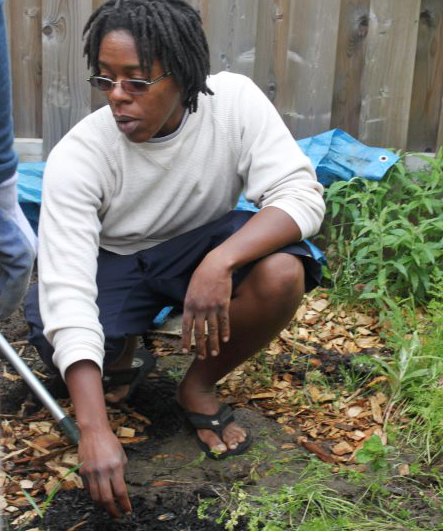Her baby, the Permaculture Project GTA (TPPGTA), “focuses on the philosophy of how to live in a more sustainable, integrated way.” It is proof that a strong but simple idea can grow into a movement. Since 2009 they have organized biannual conferences and last season they held their largest-to-date.
I’m eager to chat - my own work in the urban forest is rooted in permaculture. Janet McKay, our Executive Director, studied the philosophy in Ecuador between her Honours BA in Environmental and Resource Management and founding LEAF. It's about choosing native species over exotics, planting for biodiversity over monocultures, and viewing nature as an ally rather than something to be conquered. I’m fascinated. It’s so brilliantly simple and still so rare. As we speak it's like remembering a forgotten language.
The concept was first packaged by Australian author and naturalist Bill Mollison in the late 1970s. "The Father of Permaculture," he wanted to bring natural systems in tune with land access, legal systems, businesses and communities. Toyin’s personal vision extends similarly beyond the garden to communications, urban forests, and all aspects of human interaction.
"This," she explains, "came out of a sense of urgency. The world is hurting right now and there is a great need to connect with the environment around us. Once we have that, we can start to relearn our place within nature. But until we do, the benefits will continue to escape us.”
Even from behind her tobacco-coloured sunglasses, Toyin's eyes carry this urgency. She describes the way people used to approach her seeking help and training. "It used to be haphazard." As the numbers grew she felt it would be more effective to meet regularly in a space where everyone with an interest or desire could share their own vision and learn from each others' ideas. "Since then it has grown."

She calls it a movement. I ask how they challenge existing ideas and inspire people to get behind it. “Head, heart, feet,” she says. "Engage someone with strong ideas, connect with them emotionally, and eventually their feet will move and actions will follow."
The November 2011 conference attracted some 120 interested and active permaculture enthusiasts. It invited everyone to explore the positive side of a movement that Toyin states adamantly “should not be a luxury for the privileged.” But it wasn’t just hippies and scientists either. In the swelling crowd were many faces from Shovel and Spoon, The Stop’s therapeutic and supportive cooking and nutrition program, local gardners from the neighbourhood and people representing Toronto’s mental health community - all ready to join and share.
“So many were comfortable taking part because of the positive environment we had created,” Toyin says with a big smile.
Volunteer run, the TPPGTA's power comes from its people. For all its contagious energy and ingenuity, a recent Women's Post article it as one of the top groups in Toronto’s growing food movement. But do not necessarily see themselves as the vanguard. TPPGTA is a constantly evolving, solid team, and one that invites everybody to the table no matter what stage of life they are at. "No silos," Toyin says.
Permablitzes, dependence reduction, module training - it can be easy to get lost in the program. But the project aims to break out the esoteric into easy to take actions - like offering rainbarrels or retrofitting public spaces with natural and social features. They’ve also been invited to mentor other groups with teach-ins (such as the Occupy Toronto protests last fall), all the while building a highly trained body of people. And these are just a few examples of how they are attempting to extend permaculture to other sectors.
The concept is simple: start now, start local, and do it well. “To make it real for someone doesn’t mean yelling it from the hills,” Toyin says as we step back inside the greenhouse where she works. “You never know what a person needs to hear or when they need to hear it.” As I look around at all of the healthy fruits and vegetables - spread out neatly, evenly - I think back to my years of cramming too many herbs in a pot of poor soil, and realize just how true that statement is.
Toyin Coker is the Founder and Director of TPPGTA, you can look up the project at www.thepermacultureprojectgta.com. You can also join the growing movement. They are in the process of planning the next conference and you can expect it to arrive at a garden near you this spring.
